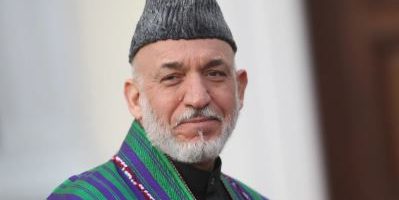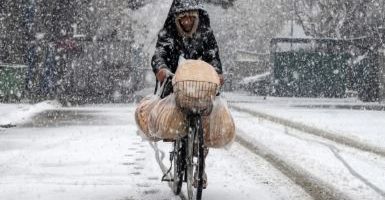UNHCR cuts cash support, deepening misery for Afghans amid ongoing forced evacuations from Pakistan

By Shamim Shahid
PESHAWAR, APR 14 /DNA/ – As the forced repatriation of Afghan nationals from Pakistan continues, the United Nations High Commissioner for Refugees (UNHCR) has reduced its cash assistance to Afghan families holding Proof of Registration (PoR) cards, compounding the challenges faced by thousands of returnees.
Previously, the UNHCR provided $375 to each Afghan family with PoR documentation upon their return to Afghanistan. However, this amount has now been slashed to $140, payable at the main entry points such as Jalalabad and Kandahar.
When contacted, UNHCR Communications Officer Qaisar Afridi confirmed the reduction in financial assistance, citing a sharp decrease—approximately 80 percent—in contributions from donor countries and member states. “Due to significant cuts in funding, we’ve had to adjust our financial support to returning Afghan families,” Afridi explained.
Importantly, this assistance is limited only to those Afghans who possess valid PoR cards and are repatriating voluntarily. Those without proper documentation—or even those holding Afghan Citizen Cards (ACCs)—are not eligible for any financial support from UNHCR.
Meanwhile, the mass evacuation of Afghans from Pakistan remains ongoing. Afridi revealed that between April 1 and April 13, 2025, over 63,616 Afghans crossed back into Afghanistan via the Torkham border. Of these, 17,055 individuals were forcibly deported after being detained by police in various districts of Punjab.
Since September 2023, an estimated 917,000 Afghan nationals have been deported from Pakistan, many after spending days in detention facilities. This has raised serious humanitarian concerns among local and international observers.
Despite assurances from the Taliban-led government in Kabul about facilitating returnees with shelter, transportation, and other support, ground realities paint a different picture. Insider reports suggest that 80 percent of the returnees lack proper housing, employment, and basic resources upon their return.
The Afghan government is currently offering 31,000 Afghanis (approx. USD 400) per returning family to cover transportation and initial settlement costs at major crossing points such as Torkham and Chaman. In Kunar province—bordering Pakistan’s Bajaur and Mohmand districts—the local administration has started distributing house allotment letters to the homeless returnees.
Additionally, the Taliban administration has established temporary camps and transit centers in Jalalabad, Laghman, Kabul, Kandahar, Khost, Gardez, and other regions to assist families in reaching their final destinations.
However, strong resentment and condemnation continue to grow, both domestically and internationally, against Pakistan’s policy of forced deportation. A delegation led by former Afghan MP Fauzia Kofi—comprising ex-parliamentarians and civil society activists—recently visited Islamabad. During their meetings with senior Pakistani officials and political leaders, they urged a reconsideration of the mass deportation policy, citing widespread fears of persecution and political retaliation under Taliban rule.
Particularly vulnerable groups—including journalists, artists, poets, musicians, and members of the transgender community—are reportedly seeking avenues to avoid deportation. The transgender community, in particular, has publicly refused to leave Pakistan, fearing severe marginalization and threats to their lives upon return.
As forced evacuations continue and international aid diminishes, the plight of Afghan refugees—many of whom have lived in Pakistan for decades—remains one of the region’s most urgent and overlooked humanitarian crises.
Related News

Karzai seen as key figure for political reconciliation in Afghanistan
Shamim shahid PESHAWAR: Tensions between Pakistan and Afghanistan continue to deepen, with analysts warning thatRead More

Long-awaited first snowfall brings relief to water-scarce Kabul
KABUL, JAN 23: Children sliding around on plastic bags, boys engaging in lively snowball fights,Read More


Comments are Closed